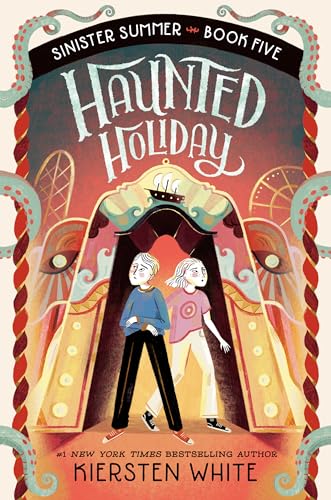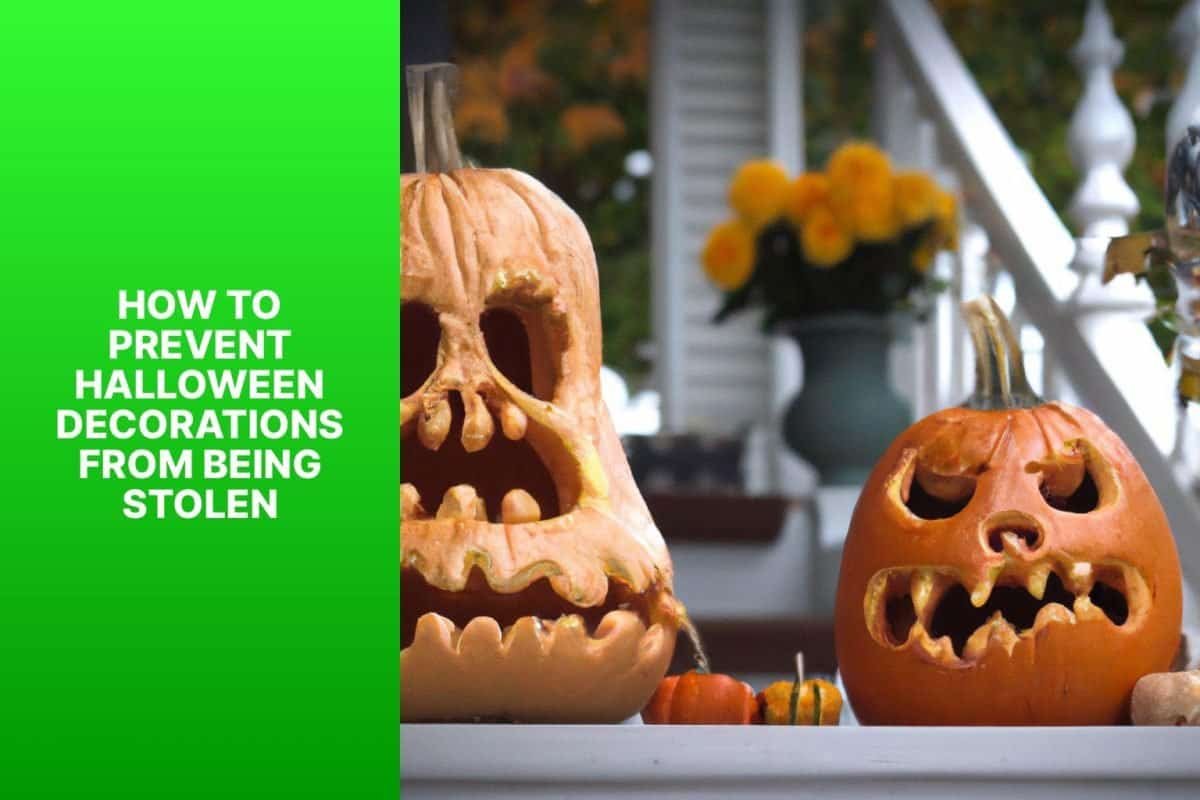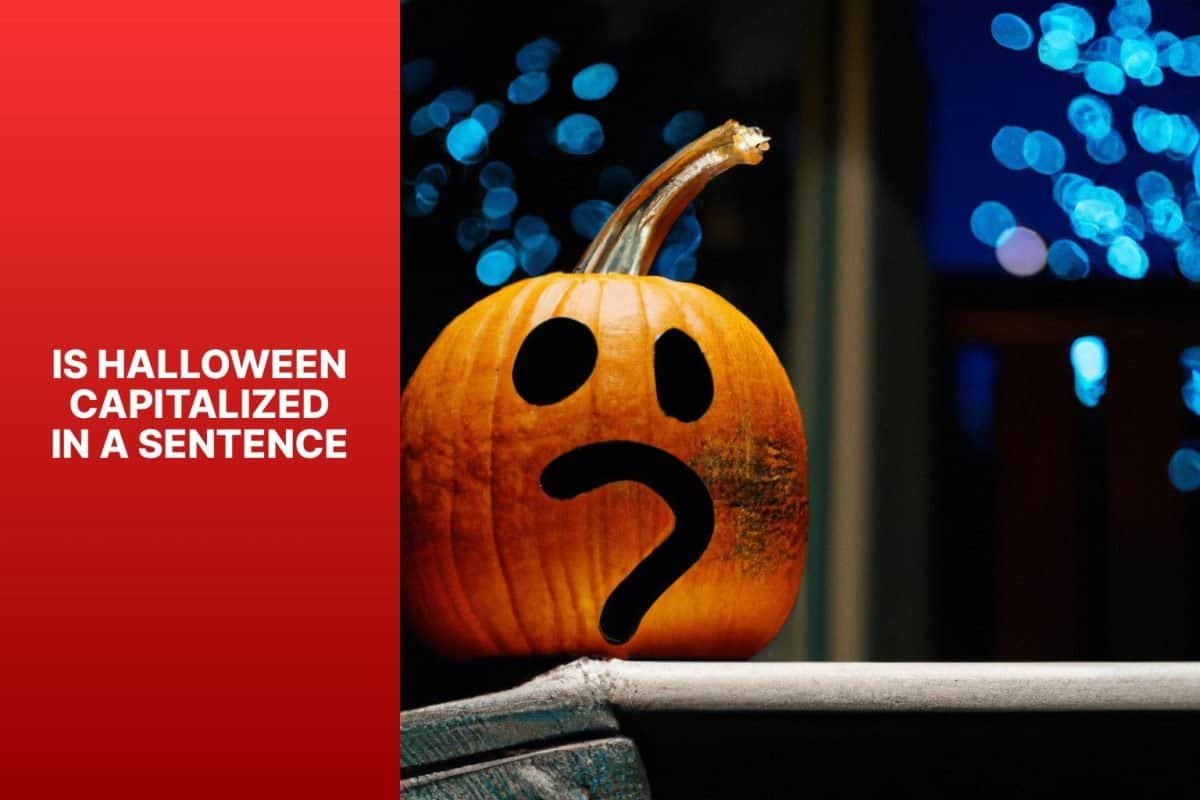Do you ever wonder if there’s a hidden connection between Halloween and Friday the 13th? Well, you’re not alone! Many people have speculated about the possible links between these two spooky occasions. In this article, we’ll explore some intriguing theories and delve into the history and symbolism behind both Halloween and Friday the 13th. Get ready for a thrilling ride as we uncover the secrets that may connect these eerie events!
Have you ever noticed how Halloween and Friday the 13th share a similar atmosphere of mystery and superstition? It’s no wonder that some people believe there could be a deeper connection between these two occasions. In this article, we’ll take a closer look at the origins and traditions of Halloween, as well as the folklore surrounding Friday the 13th. Get ready to explore the intriguing overlap between these two haunting dates!
History of Halloween
As a Halloween enthusiast, you may find it fascinating to delve into the rich history of this spook-tacular holiday. So grab your broomstick and let’s travel back in time to explore the origins of Halloween!
Ancient Beginnings
Halloween has its roots in the ancient Celtic festival of Samhain (pronounced sah-win). It marked the end of the harvest season and the beginning of winter in the Celtic calendar. People believed that on the night of October 31st, the boundary between the living and the dead was blurred, allowing spirits to roam the earth.
Christian Influence
In the 8th century, Pope Gregory III designated November 1st as All Saints’ Day to honor saints and martyrs. The night before, known as All Hallows’ Eve, gradually evolved into Halloween. The Christian influence blended with Celtic traditions, giving rise to a unique holiday that embraced both religious and pagan elements.
Trick-or-Treating and Jack-o’-Lanterns
The tradition of going door-to-door for treats, or “souling,” originated in medieval Britain. Poor individuals would visit homes and receive food in exchange for prayers for the souls of the deceased. Centuries later, this evolved into modern-day trick-or-treating, where children dress up in costumes and canvass neighborhoods for candy.
The iconic Jack-o’-Lanterns also have an interesting origin. According to legend, a man named Jack, doomed to wander the earth after making a deal with the Devil, carried a hollowed-out turnip with a piece of coal inside to light his way. When this tale merged with Halloween traditions, pumpkins became a popular choice for crafting spooky faces.
Evolution of Halloween
Halloween has evolved over the years, adopting various customs and traditions from different cultures. It has grown into a celebration of all things spooky, featuring haunted houses, costume parties, and horror movie marathons.
So, next time you’re browsing through the aisles of a Halloween shop, take a moment to appreciate the vibrant history behind this beloved holiday. From its ancient Celtic roots to its modern-day festivities, Halloween continues to captivate the imaginations of both young and old.
Origins of Friday the 13th
As a Halloween enthusiast, you may be surprised to learn that there is a connection between Halloween and another spooky date, Friday the 13th. The origins of Friday the 13th can be traced back to ancient history and carry an air of mystery and superstition. Let’s dive into the intriguing origins of this infamous date.
The Fear of Friday and the Number 13
Friday has long been associated with bad luck and superstition, making it a fitting match for Halloween’s spooky nature. The phobia of Friday the 13th, known as paraskevidekatriaphobia, combines the trepidation surrounding both the day and the number 13.
Historical Significance
The fear surrounding Friday the 13th can be traced back to various historical events and legends. One popular theory dates back to the Middle Ages, where the Knights Templar, a powerful and wealthy medieval order, were allegedly arrested on Friday the 13th in 1307. This event gave rise to the belief that Friday the 13th was a day of evil and misfortune.
Cultural Influences
Over time, Friday the 13th has been portrayed in popular culture, further solidifying its association with horror and suspense. The iconic horror film series, “Friday the 13th,” featuring the infamous character Jason Voorhees, added to the mystique surrounding this date.
Superstitions and Traditions
People around the world have developed various superstitions and traditions associated with Friday the 13th. Some believe it is unlucky to travel or start new endeavors on this date, while others take precautions such as avoiding black cats or walking under ladders.
While Halloween and Friday the 13th may not be directly linked in terms of their origins, they both share a fascination with the supernatural and the macabre. Whether you’re planning your Halloween costume or creating a haunted house, exploring the origins of Friday the 13th can add an extra layer of intrigue to your Halloween celebrations.
Superstitions and Cultural Beliefs
As a Halloween enthusiast, you know that the spooky season is filled with intriguing superstitions and cultural beliefs. It’s no surprise that Halloween and Friday the 13th share a common thread of fear and fascination. Let’s dive deeper into the intriguing world of superstitions and cultural beliefs associated with these two eerie occasions.
The Unlucky Day: Friday the 13th has long been considered an unlucky day in many cultures. The fear of this date, known as “paraskevidekatriaphobia,” stems from various historical and cultural beliefs. In Christianity, it is believed that Jesus’ crucifixion took place on a Friday, making the day ominous. The number 13 is also viewed as unlucky, traced back to biblical stories like the Last Supper where Judas, the betrayer, was the 13th guest. The amalgamation of Friday and the number 13 creates a potent cocktail of superstition.
The Ghostly Association: Halloween and Friday the 13th go hand in hand with the supernatural. Many cultures believe that the veil between the living and the dead is thinnest on Halloween, allowing spirits to roam freely among us. This connection to the spirit world aligns with the eerie nature of Friday the 13th, as it’s often associated with paranormal activity and ghostly encounters. The mystical atmosphere surrounding both occasions feeds into our fascination with the unknown.
Superstitions and Traditions: Both Halloween and Friday the 13th come with their fair share of superstitions and traditions. From avoiding black cats and broken mirrors to wearing masks and costumes, these customs are deeply ingrained in our Halloween festivities. On Friday the 13th, some people avoid traveling or making major decisions, believing that bad luck is more likely to strike on this day. These traditions and superstitions contribute to the enchantment and mystique surrounding these two occasions.
The connection between Halloween and Friday the 13th goes beyond just a shared love for fright and scares. These occasions are intertwined by superstitions and cultural beliefs that have been passed down through generations. Whether you embrace the eerie allure of Friday the 13th or revel in the spookiness of Halloween, these dates continue to captivate our imaginations and keep our hearts racing with excitement. So, as you dive into the magic of the Halloween season, remember to embrace the folklore, superstitions, and cultural beliefs that make it so uniquely
The Connection between Halloween and Friday the 13th
As a Halloween enthusiast, you may have noticed the close association between Halloween and Friday the 13th. It’s not uncommon to see horror movies, spooky decorations, and themed events celebrating both occasions. But have you ever wondered why these two dates have become so intertwined? Let’s explore the connection between Halloween and Friday the 13th.
Folklore and Superstitions:
Both Halloween and Friday the 13th have deep roots in folklore and superstitions. Halloween, with its origins rooted in ancient Celtic festivals, was believed to be a time when the boundary between the living and the spirit world was the thinnest. People would light bonfires and wear costumes to ward off evil spirits. Similarly, Friday the 13th has long been considered an unlucky day, with superstitions surrounding bad luck and unfortunate events. The combination of these spooky traditions creates an intriguing overlap between the two dates.
Cultural Influence:
The cultural impact of horror movies and literature cannot be overlooked when examining the connection between Halloween and Friday the 13th. The suspense and fear associated with both dates have been perpetuated through classic horror films like “Halloween” and “Friday the 13th,” which have become iconic representations of the holiday season. These movies have contributed to the association of both Halloween and Friday the 13th with frightful imagery, spooky tales, and thrilling experiences.
Shared Themes:
Halloween and Friday the 13th share common themes of fear, suspense, and the supernatural. From haunted houses and ghostly tales to costumes inspired by supernatural creatures and famous horror movie characters, both occasions provide opportunities for people to indulge in their love for all things spooky and eerie. The shared themes make it natural for enthusiasts like you to embrace the thrill of Halloween and the superstitions of Friday the 13th in one exciting celebration.
Product Offerings:
With the connection between Halloween and Friday the 13th so ingrained in popular culture, it’s no surprise that these dates have led to a wide range of product offerings. From themed decorations and costumes to horror movie marathons and spooky events, the market is full of exciting Halloween and Friday the 13th products. As a Halloween enthusiast, you’ll find plenty of options to enhance your celebrations and create memorable experiences for yourself and others.
Whether you’re a fan of Halloween, Friday the 13th, or the thrilling combination of both,
Popular Culture References
As a Halloween enthusiast, you’re probably no stranger to the various popular culture references associated with this spooky holiday. From movies to music to television shows, Halloween has made its mark on our entertainment landscape. Let’s explore some of these iconic references that have become synonymous with the holiday.
1. Halloween Movies: One of the most enduring Halloween movie franchises is, of course, “Halloween” itself. Created by John Carpenter in 1978, this slasher film introduced us to the infamous Michael Myers, and his iconic mask has become a symbol of the holiday. Other beloved Halloween movies include “Hocus Pocus,” “Beetlejuice,” and the “Nightmare on Elm Street” series.
2. Halloween Music: When it comes to setting the mood for Halloween, spooky music is a must. You’ve probably heard the haunting melodies of “Thriller” by Michael Jackson and “The Monster Mash” by Bobby “Boris” Pickett. These songs have become Halloween classics, and they never fail to get us in the spirit of the season.
3. Halloween TV Shows: For those who enjoy a good scare, popular TV shows like “American Horror Story” and “Stranger Things” have become go-to options for Halloween-themed binge-watching. These series, filled with suspense, horror, and supernatural elements, are perfect for getting into the Halloween spirit.
4. Halloween Costumes: Every year, Halloween brings costumes inspired by our favorite characters and icons from popular culture. From superheroes to movie villains and everything in between, Halloween allows us to transform into the characters we love and admire. Whether you opt for a classic costume or something more obscure, Halloween gives you the opportunity to showcase your creativity and pay homage to your favorite pop culture references.
So, whether you’re watching a classic horror film, dancing to spooky tunes, or dressing up as your favorite character, Halloween’s connections to popular culture are undeniable. These references have become an integral part of the holiday, allowing us to immerse ourselves in the spirit of Halloween.
Next, let’s move on to the must-have Halloween decorations that will make your home the spookiest on the block.
Conclusion
Now you have a better understanding of the connection between Halloween and Friday the 13th. You’ve learned about the fear and superstitions that surround both dates, as well as the historical events and cultural influences that have contributed to their association with horror and suspense. You’ve also discovered the various superstitions and traditions associated with Friday the 13th, and explored the popular culture references that have made Halloween so iconic.
By delving into the origins of these spooky dates and exploring the superstitions and cultural beliefs that surround them, you’ve gained insight into their integration into popular culture. Whether you’re a fan of horror movies, enjoy dressing up for Halloween, or simply find these dates fascinating, understanding their connection adds an extra layer of intrigue.
So the next time Halloween rolls around or Friday the 13th looms, you’ll have a deeper appreciation for the history and significance behind these eerie occasions. Embrace the spooky vibes and enjoy the thrills and chills that come with these iconic dates.















